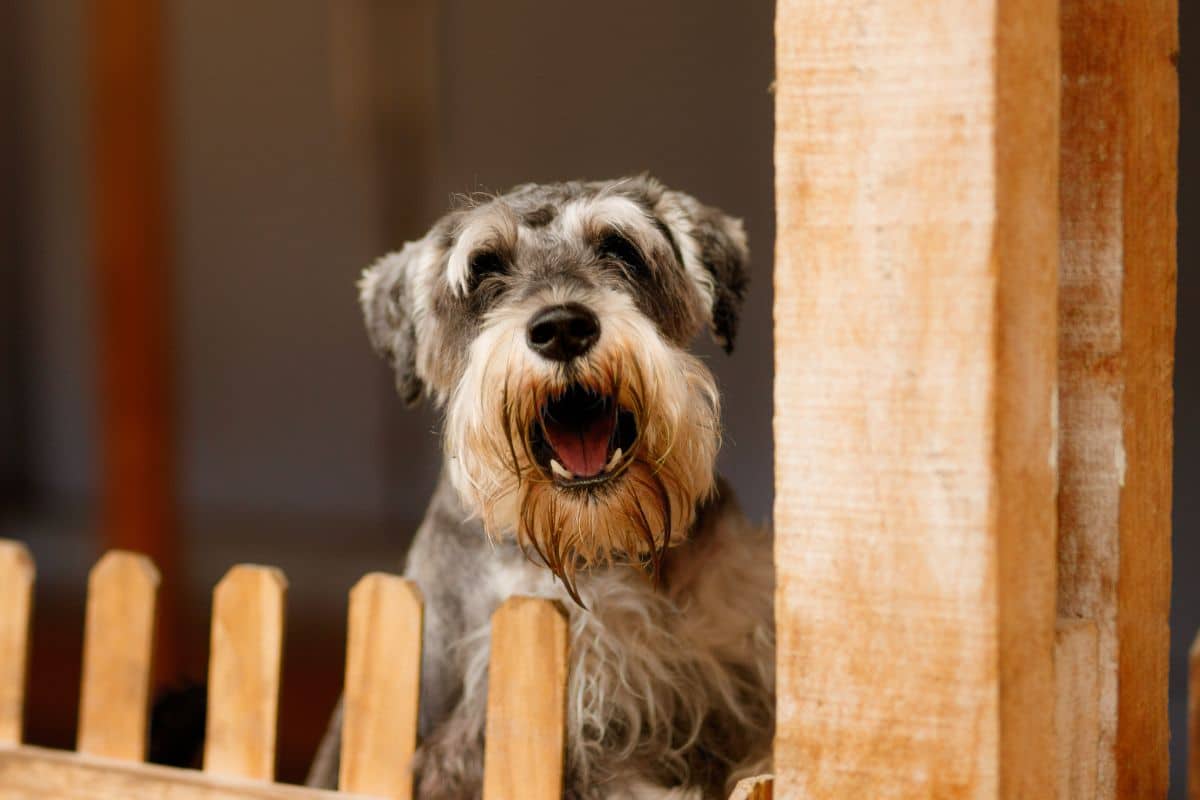Most of the time, dogs will bark for a specific reason, whether it’s because they’ve spotted a person or animal that they recognize as an intruder, or they are demanding to have their water bowl filled up.
Barking is simply the easiest way for our canine companions to let us know something is bothering them, but when a dog has grown closer to their owner, it will also start to bark to gain their attention, which can be very hard to ignore and quite irritating when you’re in the middle of a call or enjoying your favourite tv show.
The good news is, you can train a dog to stop barking in this way very easily when you know the correct ways to go about it.
Here is everything you need to know about this common behaviour, and what you should consider doing if your own dog starts demanding all the attention.
How To Tell If A Dog Is Barking For Attention
Very often, dogs will bark directly at an object, such as their water bowl or the back door, when they want a specific thing from their owner, but if they are simply barking for attention, they usually sit directly in front of the owner and stare straight at them to ‘voice their opinion’.
Dogs also tend to bark at a much faster rate when they are doing it for attention, so if it seems like they are trying to confront you about something and are perched somewhere you
can clearly see them, they are most probably barking because they crave some attention.
Ways To Deal With Attention Seeking Barking

There are a few different methods you can practise to teach your dog to only bark when it is absolutely necessary so that they don’t continuously make a loud ruckus just to grab your attention.
Here are a few of the best ways to encourage a dog to stop barking just for attention.
Reward Them When They Are Quiet
If your dog is ever lying down next to your feet or on a piece of furniture and they are remaining completely still and quiet, or if they are just making their own fun with a chewy toy, give them a little snack as a treat to let them know that they’re behaving well.
Treats are a great form of positive reinforcement for dogs which will help train them to stay away from negative behavioural traits, and that includes barking for attention.
Ignore The Barking
Try to ignore looking at your dog when they begin barking for attention so that you can let them know that this is not a tactic that’s going to work.
Keep in mind that when doing this, the dog’s barking is inevitably going to start getting louder, and while this might mean that you’ll need to grab a pair of headphones to block out the noise, it’s also a good sign that the dog is close to giving up.
Just try to ride it out whenever it happens, and your canine companion will soon learn to behave and only bark when it’s necessary.
Keep Them Active
If a dog is tired out at the end of the day, it’s less likely that they will need to bark for their owner’s attention, so make sure to walk your dog 1-2 times per day, and let them explore their surroundings so they can burn off any extra energy.
Playing a game of fetch, partaking in food puzzles, and enjoying other creative games will all keep a dog occupied so that they don’t start barking out of boredom once they get home.
If you really want to tire your dog out while on a walk, you could even try brisk walking which
is a little faster than a stroll, but isn’t actually full-on running.
You will be able to know if you are brisk walking correctly if you are still able to talk, but not able to clearly sing the words to a song.
If your dog is able to trot at your side without pulling the lead during a brisk walk, then it’s a great way to keep them active while outdoors.
Avoid Your Dog During Barking Hours
When a dog manages to grab their owner’s attention on a few different occasions, it will often start getting into a routine of only barking around that similar time.
This is usually during the evening, but it can even be the first thing the dog does as soon as it wakes up in the morning. It entirely depends on when the owner is most likely to react which will determine when the barking will commence.
As an owner, pay close attention to when the dog seems to enjoy barking the most and give them one of their favourite toys that you’ve been hiding the entire day so that they have something to keep them occupied during this time.
You can also try simply moving to another room in the house since dogs will also become accustomed to barking for attention in a particular space, with the living room usually being their favourite place to draw their owner’s attention.
Why Do Dogs Bark For Attention?
While some breeds are known for being a lot more slothful and lazy than others, dogs by nature are very active and sociable animals that don’t handle isolation very well.
Therefore, the biggest reason they will bark at their owners is that they’re simply bored or a little lonely, but this doesn’t mean that you always have to give in to their demands, especially if it’s the end of the day and they have already gone for a walk and been fed.
Dogs must learn that they can’t always get what they want, so rather than encouraging this behaviour and responding to it, it’s better to let the dog know that they have to enjoy their own space and find ways to occupy themselves when their owner is busy.
Summary
While it is an incredibly common behavioural trait among dogs, attention seeking barking shouldn’t be encouraged since it will allow the dog to feel like they can demand their owner’s attention whenever they feel like it, even just for their own pleasure.
To avoid this from happening, make sure that you reward your dog when it’s keeping to itself, encourage them to be as active as possible, and ignore the barking as best as you can so that they know that it won’t work in the future.





